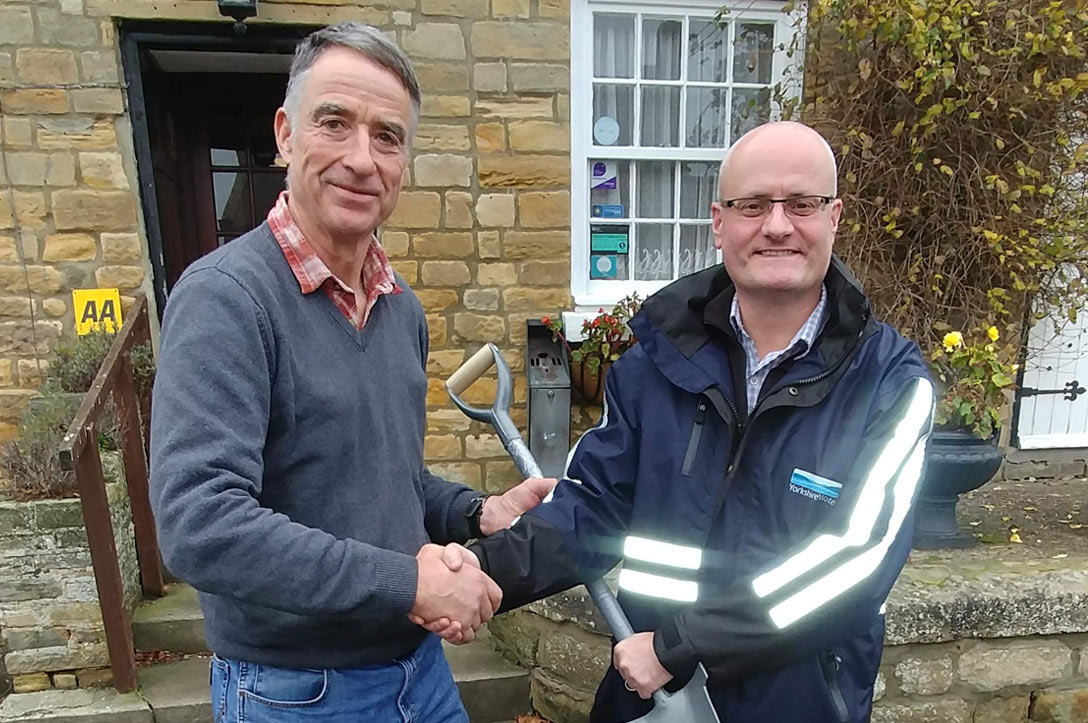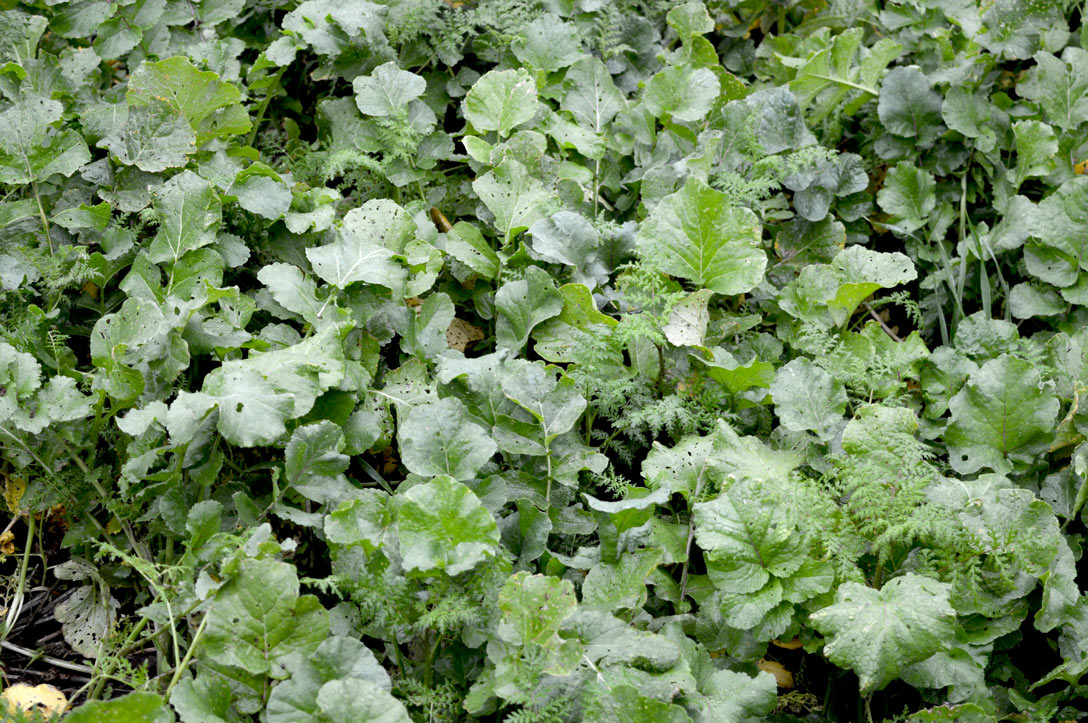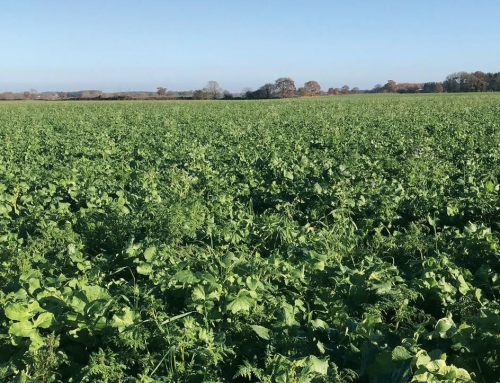A key part of improving soil structure and water quality is to increase the amount of organic matter in the soil. A 1% increase in organic matter per acre increases water holding capacity by 21,000 gallons per acre. This reduces soil erosion, nutrient loss, potential flooding and increases the amount of water available to the crop.
One of the ways to increase organic matter is to grow a cover crop. As part of the Sustainable Landscapes project sponsored by Yorkshire Water, farmers in the pilot schemes were all given up to 30 acres of seed to encourage them to try growing cover crops, many of whom doing so for the first time.
Despite very dry soils at drilling and little rain, the cover crops germinated pretty well, and rapidly grew on most farms, developing good organic matter growth, both above and below ground.

The cover crops were visited by the farmer groups in November before they were frost damaged. Neil Fuller our partner agronomist and soil scientist acted as the impartial judge. Neil said “I am really impressed with the quality of these cover crops, they are demonstrating excellent root activity, which will help add structure to the soil, capture nutrients, and promote significant growth above the surface, which will add organic matter to the soil when incorporated.
The winners of the three pilots were:
- Topcliffe – Christopher Potter
- Shipton by Beningbrough – Claire Sherry
- Elvington – Nick Hobson
All of these farmers were presented with a specialist spade, ideal for digging soil pits for monitoring soil structure and soil health.
Topcliffe
Christopher Potter

Andrew C Walker, Catchment Strategy Manager for Yorkshire Water, presenting Christopher with his award.


Shipton by Beningbrough
Claire Sherry

Andrew C Walker, Catchment Strategy Manager for Yorkshire Water, presenting Claire with her award.

Elvington
Nick Hobson

Paul Rhodes, Director or Future Food Solutions and Sustainable Landscapes, presenting Nick with his award

The overall winner of this prestigious award was Claire Sherry, who as a first-time grower of cover crops, achieved effective establishment of the crop which had then grown on to develop significant organic matter above and below ground. This will ultimately lead to better soil health and add value to the ensuing barley crop that was drilled the following spring. As a consequence of the above ground cover crop growth, Claire decided to have the crop part grazed off by sheep. The additional livestock activity will result in added benefits to the land. Claire was presented by Debbie Feldhaus, Head of Water Quality and Production at Yorkshire Water with a voucher for a meal for two at the highly regarded restaurant in York called Roots. Claire remarked that she had a very enjoyable evening.

Debbie Feldhaus, Head of Water Quality and Production at Yorkshire Water, presenting Claire with her award.
The right cover crops grown well can result in a range of benefits for your farm, these include:
- Helping to boost organic matter content which increases water holding capacity
- Improving soil health and structure, making it easier to cultivate
- Enhancing soil biota numbers and below ground biological activity, particularly assisting with worm numbers
- Soil cover preventing soil erosion
- Capturing nutrients left in the soil, and preventing leaching
- Providing weed suppression – useful tool in black grass control
- Oily radish included within the mix can be used to control nematodes
We are now starting Year 2 of the Sustainable Landscapes Project and are wanting to increase the amount of cover crops grown in the pilot areas. To that end, up to 30 acres of seed will be provided free with any additional volumes needed, at a discounted rate. Clive Wood from Kings will be supporting farmers and available to advise about the most appropriate cover crop seed mixes for the coming year.








